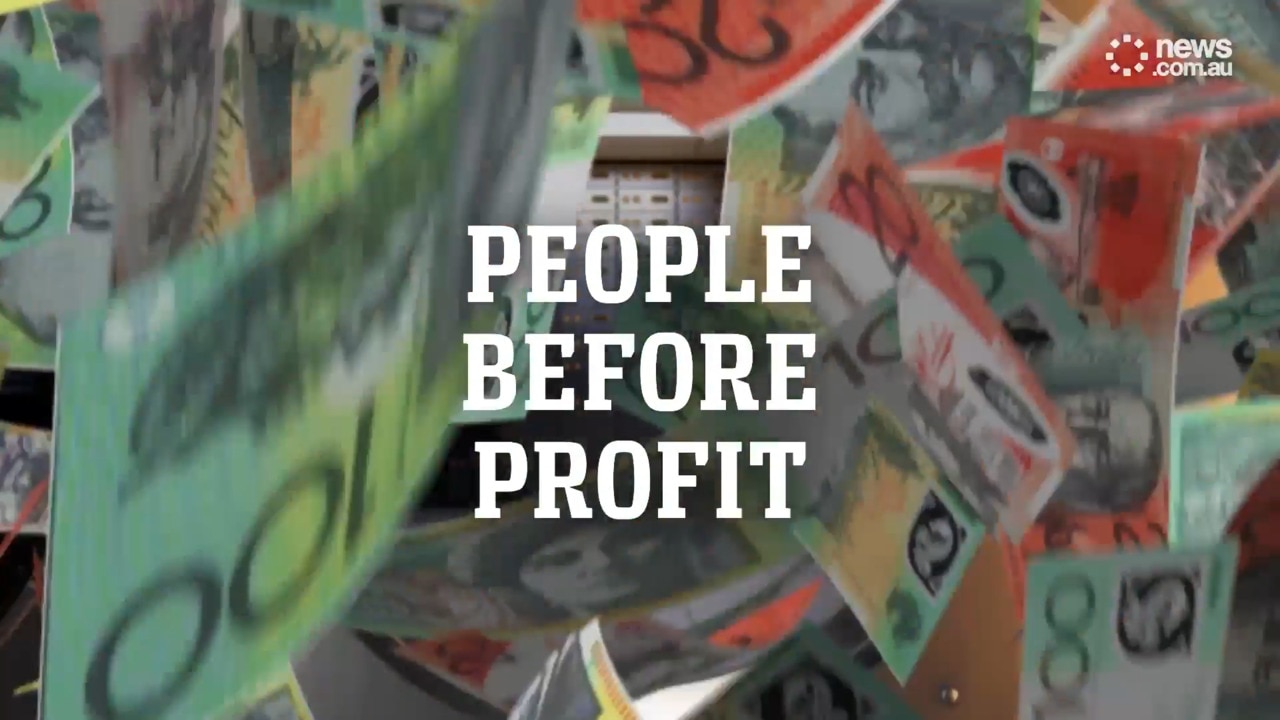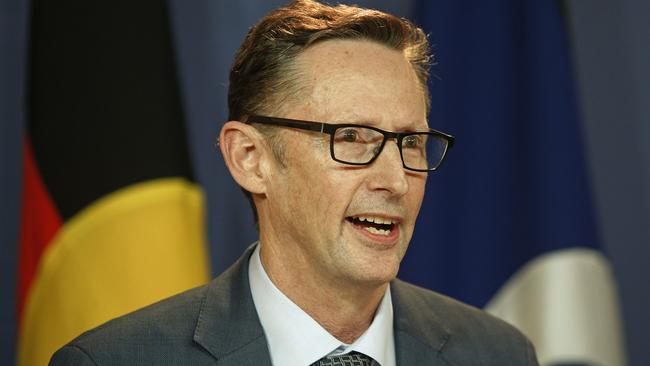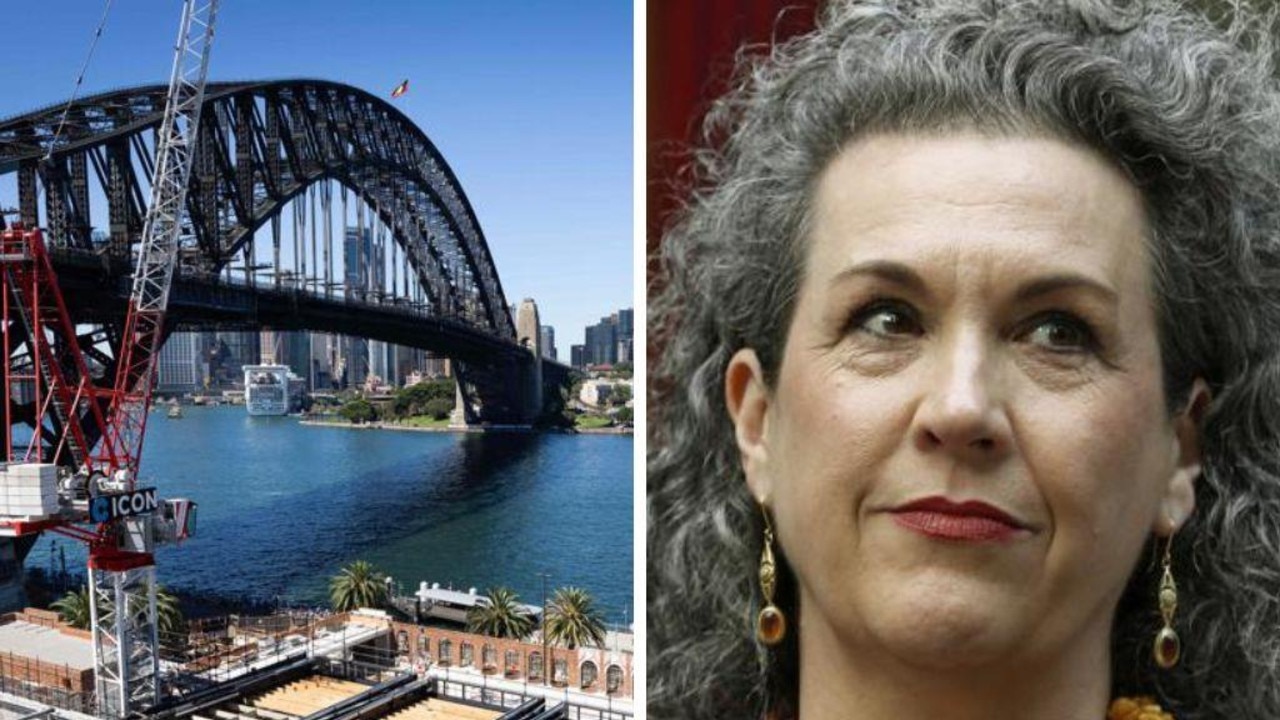‘Blatantly stacked’: Money crisis to hit Australia if scams aren’t tackled
Alarm bells have been sounded that a huge problem will continue to cause immense harm and drain billions of dollars from everyday Australians.

Costs
Don't miss out on the headlines from Costs. Followed categories will be added to My News.
OPINION
Our lawyers and financial counsellors speak with scam victims almost every day at the Consumer Action Law Centre with people’s lives changed forever when they’ve lost life savings, their buffers, confidence transacting online and families are impacted with victims retreating into themselves.
This is an incredibly human problem.
In 2023, $2.74 billion of Australians’ money was lost to scams. The year prior it was $3.1 billion.
With almost no improvement in banks lifting the rate of reimbursement, victims are bearing 96 per cent of the burden of this multibillion-dollar problem.
This week, news.com.au launched People Before Profit, calling on the federal government to make it mandatory for banks to compensate scam victims – just like in the UK.
In October last year, the UK introduced world leading legislation making compensation mandatory for scam victims within five business days except in cases of gross negligence.
IT’S TIME BANKS PUT PEOPLE BEFORE PROFITS. SIGN THE PETITION HERE.
Frictionless payments aren’t required by law, they’re a result of industry’s attempt to offer a better product than their competitors.
Yes, they are convenient, but the degree of scam losses suggests that they aren’t meeting consumer or the broader economy’s needs.
Building safeguards into transactions should be the cost – both financial and moral – of doing business.
For years now, consumer advocates and scam victims from across the country have all been calling on government to follow the UK reimbursement approach to scams.
The evidence shows that model is working – the Payment System Regulator most recently recorded a 12 per cent decrease in APP scam (volume) losses, even before the model was made mandatory late last year.
Australia could do even better.
We could introduce a world leading, modified reimbursement approach that also apportions liability for scam losses across the ecosystem, starting with telcos and digital platforms as well as banks.
This would be international best practice to protect consumers from devastating losses and drive the level of industry investment needed to effectively prevent scams.
That is – if business is on the hook for reimbursing scams, it will do all it can to stop them.
But today, we find ourselves in a difficult situation.
The reimbursement framework is not on the table. Prevention measures across the ecosystem are inadequate and banks aren’t meaningfully compensating their own customers when they fail to protect them from scams.
Despite grave concerns we support the urgent passage of the Bill, conditional on a key amendment to clarify liability for compensation.
Assistant Treasurer, Stephen Jones, has repeatedly stated that businesses will compensate complainants when they fail to meet their ‘high bar’ obligations under the Framework.
But the Bill specifically lays out the opposite – that a consumer must prove that multiple corporations didn’t meet their obligations under the Framework, and that the various breaches – of various corporations – have caused the loss.

The Law Council of Australia in its submission has also highlighted that the laws “will result in compensation being denied to the consumer”.
This is a David and multiple Goliath battle.
Scammers are innovative well-resourced and sophisticated criminals. Ordinary people don’t have access to the scams intelligence only banks, telcos and platforms will see under the Framework. Yet the chances of compensation are blatantly stacked against them.
Because of a lack of laws, investment by our biggest multinational corporations to combat scams is severely lacking.
If the Framework is not changed to be centred around the consumer, as we are witnessing on our front lines, scammers will remain steps ahead and continue to cause immense harm and drain billions of dollars from everyday Australians.
We are being told the prevention measures set out in the government’s Bill will work and be the best in the world.
If that is the case, then what is the argument against industry being liable for losses when the prevention measures fail?
This Bill should not pass without clearly setting out liability for compensation.
That is, specifying that if a regulated entity fails to meet an obligation under the Framework, the consequence is a ‘presumption of compensation’ for the victim’s loss.
Stephanie Tonkin is the CEO of the Consumer Action Law Centre
Originally published as ‘Blatantly stacked’: Money crisis to hit Australia if scams aren’t tackled




